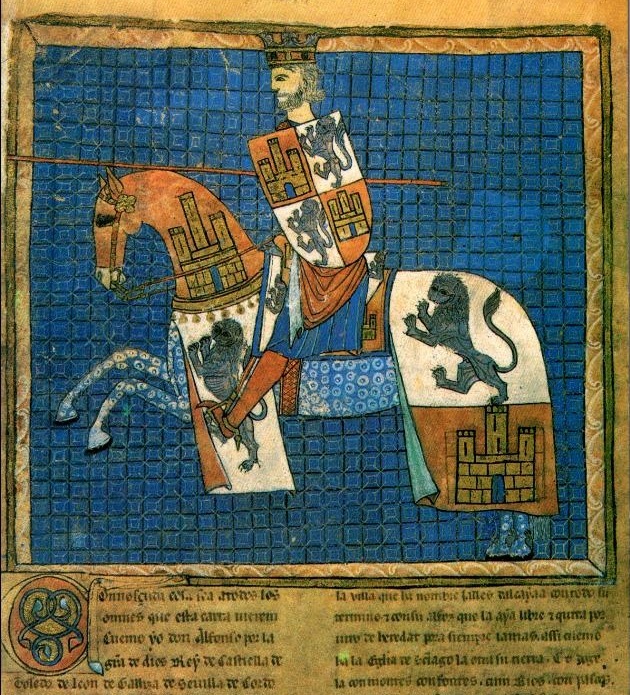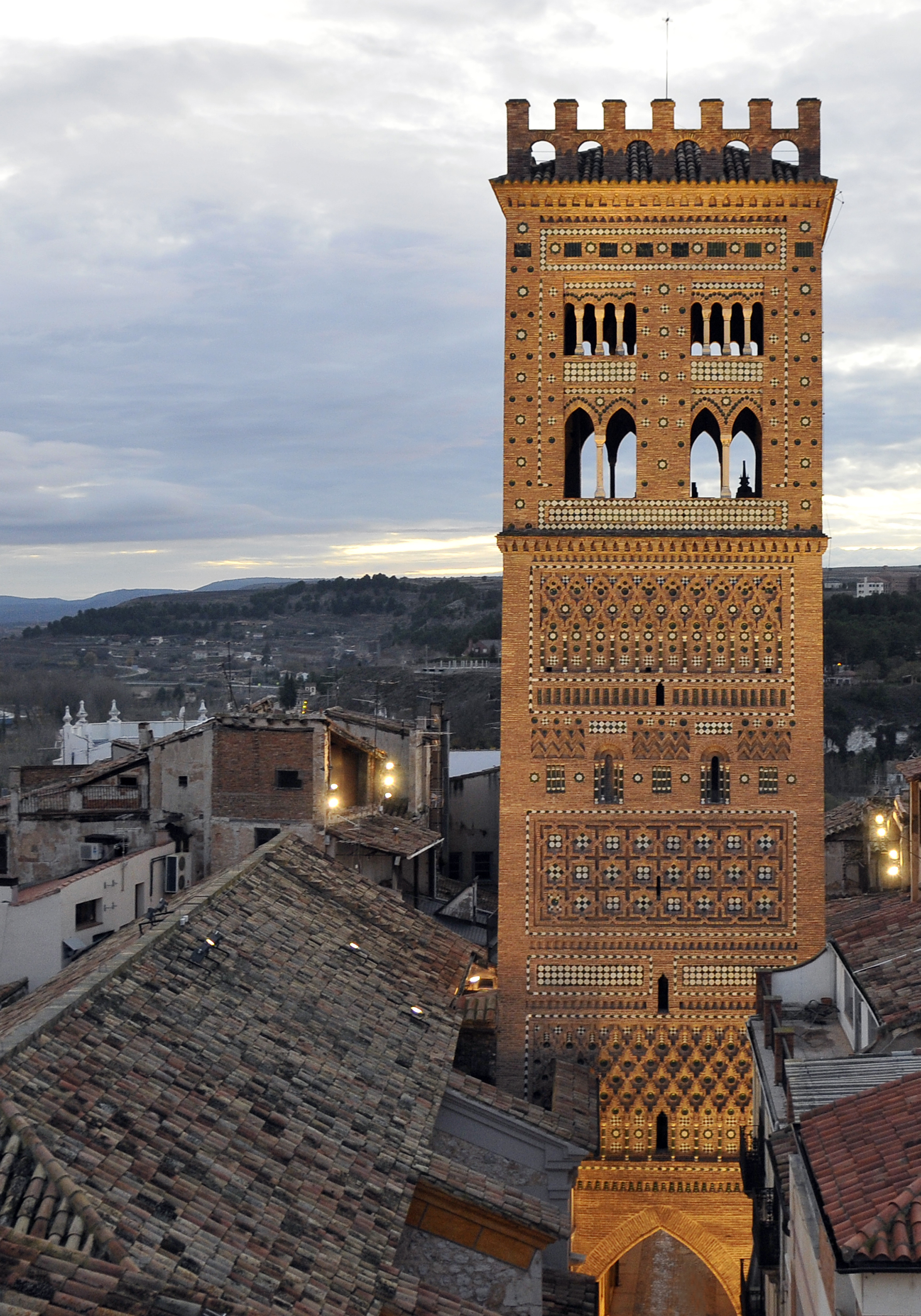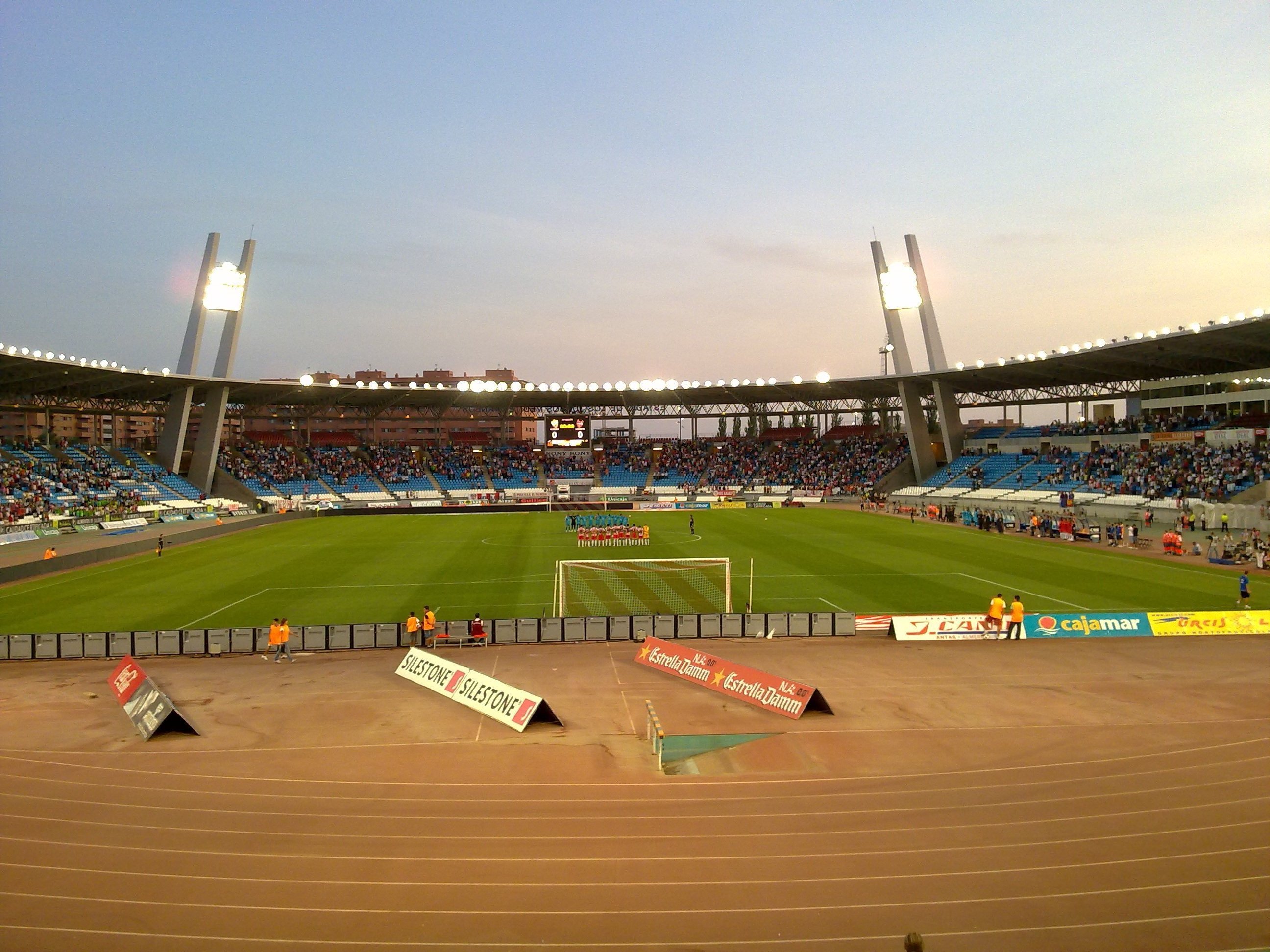|
Muhammad I Of Granada
Abu Abdullah Muhammad ibn Yusuf ibn Nasr (; 22 January 1273), also known as Ibn al-Ahmar (, ) and by his honorific al-Ghalib billah (, ), was the first ruler of the Emirate of Granada, the last independent Muslim state on the Iberian Peninsula, and the founder of its ruling Nasrid dynasty. He lived during a time when Iberia's Christian kingdoms—especially Portugal, Castile and Aragon—were expanding at the expense of the Islamic territory in Iberia, called Al-Andalus. Muhammad ibn Yusuf took power in his native Arjona in 1232 when he rebelled against the de facto leader of Al-Andalus, Ibn Hud. During this rebellion, he was able to take control of Córdoba and Seville briefly, before he lost both cities to Ibn Hud. Forced to acknowledge Ibn Hud's suzerainty, Muhammad was able to retain Arjona and Jaén. In 1236, he betrayed Ibn Hud by helping Ferdinand III of Castile take Córdoba. In the years that followed, Muhammad was able to gain control over southern cities, includ ... [...More Info...] [...Related Items...] OR: [Wikipedia] [Google] [Baidu] |
Mudéjar Revolt Of 1264–1266
The Mudéjar revolt of 1264–1266 was a rebellion by the Muslim populations (''Mudéjares'') in the Lower Andalusia and Murcia regions of the Crown of Castile. The rebellion was in response to Castile's policy of relocating Muslim populations from these regions and was partially instigated by Muhammad I of Granada. The rebels were aided by the independent Emirate of Granada, while the Castilians were allied with Aragon. Early in the uprising, the rebels managed to capture Murcia and Jerez, as well as several smaller towns, but were eventually defeated by the royal forces. Subsequently, Castile expelled the Muslim populations of the reconquered territories and encouraged Christians from elsewhere to settle their lands. Granada became a vassal of Castile and paid an annual tribute. Background A rebellion occurred during the ''Reconquista'', the centuries-long conquest of territories held by Muslims in the Iberian peninsula (called Al-Andalus by the Muslims) by Christian king ... [...More Info...] [...Related Items...] OR: [Wikipedia] [Google] [Baidu] |
Al-Andalus
Al-Andalus () was the Muslim-ruled area of the Iberian Peninsula. The name refers to the different Muslim states that controlled these territories at various times between 711 and 1492. At its greatest geographical extent, it occupied most of the peninsula as well as Septimania under Umayyad rule. These boundaries changed through a series of conquests Western historiography has traditionally characterized as the ''Reconquista'',"Para los autores árabes medievales, el término Al-Andalus designa la totalidad de las zonas conquistadas – siquiera temporalmente – por tropas arabo-musulmanas en territorios actualmente pertenecientes a Portugal, España y Francia" ("For medieval Arab authors, Al-Andalus designated all the conquered areas – even temporarily – by Arab-Muslim troops in territories now belonging to Spain, Portugal and France"), García de Cortázar, José Ángel. ''V Semana de Estudios Medievales: Nájera, 1 al 5 de agosto de 1994'', Gobie ... [...More Info...] [...Related Items...] OR: [Wikipedia] [Google] [Baidu] |
Alfonso X Of Castile
Alfonso X (also known as the Wise, ; 23 November 1221 – 4 April 1284) was King of Castile, Kingdom of León, León and Kingdom of Galicia, Galicia from 1 June 1252 until his death in 1284. During the April 1257 Imperial election, election of 1257, a dissident faction chose him to be king of Germany on 1 April. He renounced his claim to Germany in 1275, and in creating an alliance with the Kingdom of England in 1254, his claim on the Duchy of Gascony as well. Alfonso's scientific interests—he is sometimes nicknamed the Astrologer (''el Astrólogo'')—led him to sponsor the creation of the Alfonsine tables, and the Alphonsus (crater), Alphonsus crater on the Moon is named after him. He also sponsored the work of historians who, for the first time since Isidore of Seville in , placed Spain in the context of world history. As a lawmaker he introduced the first vernacular law code in Castile, the ''Siete Partidas''. He created the Mesta, an association of sheep farmers in the cen ... [...More Info...] [...Related Items...] OR: [Wikipedia] [Google] [Baidu] |
Banu Ashqilula
The Banu Ashqilula were an Arab dynasty who governed Málaga and Guadix. Their assistance to Muhammad ibn al-Ahmar in founding the Emirate of Granada and their later opposition to al-Ahmar's successors made the Asqilula one of the most influential families of the 13th century Spain. The Ashqilula were one of the clans who were able to maneuver themselves into positions of prominence and influence under the rule of the Nasrid Dynasty. The family first rose to prominence in 1232 when their leader Abu'l Hasan Ali Ibn Ashqilula al-Tujibi helped the Nasrid dynasty during the conquest of Granada. For the first twenty years of Nasrid rule in Granada, the Ashqilula worked closely with al-Ahmar in his early endeavors, like the short lived conquest of Seville. As reward for their service, the Asqilula were granted governorships in the Nasrid territories of Málaga, Guadix Guadix (, ) is a city and municipalities of Spain, municipality in southern Spain, in the Granada (province), province o ... [...More Info...] [...Related Items...] OR: [Wikipedia] [Google] [Baidu] |
Mudéjar Revolt Of 1264–66
Mudéjar were Muslims who remained in Iberia in the late medieval period following the Christian reconquest. It is also a term for Mudéjar art, which was greatly influenced by Islamic art, but produced typically by Christian craftsmen for Christian patrons. ''Mudéjar'' was used in contrast to both Muslims in Muslim-ruled areas (for example, Muslims of Granada before 1492) and Moriscos, who were often forcibly converted and may or may not have continued to secretly practice Islam. The corresponding term for Christians living under Muslim rule is Mozarabs. Starting from the eleventh century, when larger regions previously under Muslim control fell to Christian kingdoms, treaties were established with the remaining Muslim population which defined their status as Mudejar. Their status, modelled after the dhimmi, established a parallel society with its own religious, legal, administrative and fiscal autonomy and institutions, while being subject to their Christian kings and lords. ... [...More Info...] [...Related Items...] OR: [Wikipedia] [Google] [Baidu] |
Crown Of Castile
The Crown of Castile was a medieval polity in the Iberian Peninsula that formed in 1230 as a result of the third and definitive union of the crowns and, some decades later, the parliaments of the kingdoms of Kingdom of Castile, Castile and Kingdom of León, León upon the accession of the then Castilian king, Ferdinand III of Castile, Ferdinand III, to the vacant List of Leonese monarchs, Leonese throne. It continued to exist as a separate entity after the personal union in 1469 of the crowns of Castile and Crown of Aragon, Aragon with the marriage of the Catholic Monarchs up to the promulgation of the Nueva Planta decrees by Philip V of Spain, Philip V in 1716. In 1492, the voyage of Christopher Columbus and the discovery of the Americas were major events in the history of Castile. The West Indies, Islands and Mainland of the Ocean Sea were also a part of the Crown of Castile when transformed from lordships to kingdoms of the heirs of Castile in 1506, with the Treaty of Villafá ... [...More Info...] [...Related Items...] OR: [Wikipedia] [Google] [Baidu] |
Málaga
Málaga (; ) is a Municipalities in Spain, municipality of Spain, capital of the Province of Málaga, in the Autonomous communities of Spain, autonomous community of Andalusia. With a population of 591,637 in 2024, it is the second-most populous city in Andalusia and the Ranked lists of Spanish municipalities#By population, sixth most populous in the country. It lies in Southern Iberian Peninsula, Iberia on the Costa del Sol ("Coast of the Sun") of the Mediterranean, primarily in the left bank of the Guadalhorce. The urban core originally developed in the space between the Gibralfaro, Gibralfaro Hill and the Guadalmedina. Málaga's history spans about 2,800 years, making it one of the List of cities by time of continuous habitation#Europe, oldest continuously inhabited cities in Western Europe. According to most scholars, it was founded about 770BC by the Phoenicians from Tyre, Lebanon, Tyre as ''Malaka''. From the 6th centuryBC the city was under the hegemony of Ancient Cartha ... [...More Info...] [...Related Items...] OR: [Wikipedia] [Google] [Baidu] |
Almería
Almería (, , ) is a city and municipalities in Spain, municipality of Spain, located in Andalusia. It is the capital of the province of Almería, province of the same name. It lies in southeastern Iberian Peninsula, Iberia on the Mediterranean Sea. Caliph Abd al-Rahman III founded the city in 955. The city grew wealthy during the Islamic era, becoming a world city throughout the 11th and 12th centuries. It enjoyed an active port that traded Almerían silk, silk, oil, and raisins. Being adjacent to a small desert, Almería has an exceptionally dry climate by European standards. Etymology The name "Almería" comes from the city's former Arabic name, ''Madīnat al-Mariyya'', meaning "city of the watchtower". As the settlement was originally the port or coastal suburb of Pechina, it was initially known as ''Mariyyat al-Bajjāna'' (''Bajjāna'' being the Arabic name for Pechina). History The origin of Almería is connected to the 9th-century establishment of the so-called Republic ... [...More Info...] [...Related Items...] OR: [Wikipedia] [Google] [Baidu] |
Ferdinand III Of Castile
Ferdinand III (; 1199/120130 May 1252), called the Saint (''el Santo''), was King of Castile from 1217 and King of León from 1230 as well as King of Galicia from 1231. He was the son of Alfonso IX of León and Berengaria of Castile. Through his second marriage he was also Count of Aumale. Ferdinand III was one of the most successful kings of Castile, securing not only the permanent union of the crowns of Castile and León, but also masterminding the most expansive southward territorial expansion campaign yet in the Guadalquivir Valley, in which Islamic rule was in disarray in the wake of the defeat of the Almohad caliphate at the Battle of Las Navas de Tolosa. His repeated and decisive victories against the Islamic Caliphate earned him the title Athleta Christi, meaning 'Champion of Christ', which was conferred upon him by Pope Gregory IX. By military and diplomatic efforts, Ferdinand greatly expanded the dominions of Castile by annexing the Guadalquivir, crown of Guadalquivir ... [...More Info...] [...Related Items...] OR: [Wikipedia] [Google] [Baidu] |
Jaén, Spain
Jaén () is a Municipalities in Spain, municipality of Spain and the capital of the Jaén Province, Spain, province of Jaén, in the autonomous community of Andalusia. The city of Jaén is the administrative and industrial centre for the province. Industrial establishments in the city include chemical works, tanneries, distilleries, cookie factories, textile factories, as well as agricultural and olive oil processing machinery industry. The layout of Jaén is determined by its position on the foothills of the Cerro de Santa Catalina, with steep, narrow streets, in the historic core. Its population is 112,757 (2020), about one-sixth of the population of the province. Jaén had an increase in cultural tourism in the mid-2010s, having received 604,523 tourists in 2015, 10% more than in 2014. Etymology The name is most likely derived from the Roman name ''Villa Gaiena'' (Villa of Gaius). It was called Jayyān during the time of Al-Andalus. The inhabitants of the city are known a ... [...More Info...] [...Related Items...] OR: [Wikipedia] [Google] [Baidu] |
Suzerainty
A suzerain (, from Old French "above" + "supreme, chief") is a person, state (polity)">state or polity who has supremacy and dominant influence over the foreign policy">polity.html" ;"title="state (polity)">state or polity">state (polity)">state or polity who has supremacy and dominant influence over the foreign policy and economic relations of another subordinate party or polity, but allows internal autonomy to that subordinate. Where the subordinate polity is called a vassal, vassal state or tributary state, the dominant party is called the suzerain. The rights and obligations of a vassal are called ''vassalage'', and the rights and obligations of a suzerain are called suzerainty. Suzerainty differs from sovereignty in that the dominant power does not exercise centralized governance over the vassals, allowing tributary states to be technically self-ruling but enjoy only limited independence. Although the situation has existed in a number of historical empires, it is con ... [...More Info...] [...Related Items...] OR: [Wikipedia] [Google] [Baidu] |




